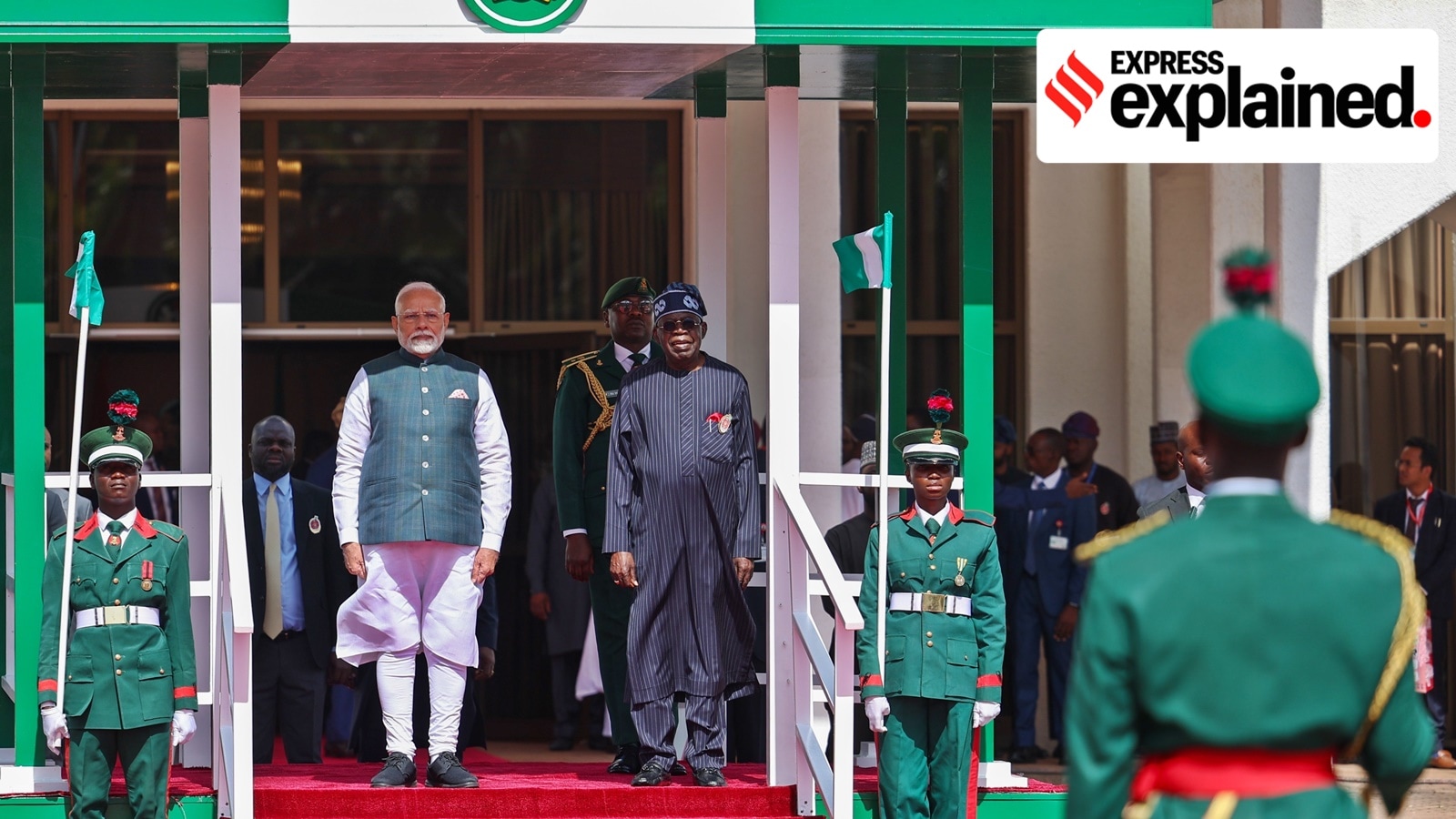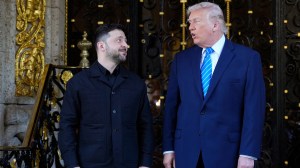Prime Minister Narendra Modi arrived in Nigeria early on Sunday (November 17), ahead of his visit to Brazil for the G20 Leaders Summit. In his opening remarks at a meeting with Nigerian President Bola Ahmed Tinubu, he said, “We give high priority to our strategic partnership with Nigeria.”
The trip to the African nation was the first by an Indian prime minister in 17 years. Nigeria’s second-highest national award – the Grand Commander of the Order of Niger – was conferred on PM Modi at a ceremony in the capital Abuja, “for his statesmanship and stellar contribution to fostering India-Nigeria ties.” He thus became the first foreign leader to receive the award since 1969.

In his speech, the PM noted the “longstanding, historical friendship between India and Nigeria”, stating that the recognition underscored their commitment to the aspirations of the Global South. He also identified terrorism, separatism, piracy and drug trafficking as major challenges the countries have worked on together.
We look at the history of India-Nigeria ties, Nigeria’s standing in the continent and the significance of deepening ties amid Chinese presence in Africa.
Six decades of India-Nigeria ties
India and Nigeria, with a population of 1.4 billion and 220 million respectively, are both large, developing and democratic countries with multi-religious, multi-ethnic and multilingual societies. When former PM Manmohan Singh visited Abuja in October 2007, the countries raised the status of their bilateral relationship to a “Strategic Partnership”.
But the ties go back more than 60 years, to when India established its Diplomatic House in Lagos in 1958 – two years before Nigeria became independent of British colonial rule in 1960. Political contacts at the highest level have been maintained since then.
From the 1960s to the ’80s, Indian teachers and doctors played a crucial role during the formative years of independent Nigeria. India also established the National Defence Academy in Kaduna and the Naval War College of Port Harcourt. The 60,000-strong Indian expatriate community, the largest in West Africa today, adds value to the long-standing bilateral relationship.
Story continues below this ad
“Nigeria has had a huge and positive role in Africa. And, close cooperation with Africa has been a high priority for India,” said PM Modi in a post on X.
There is a major economic dimension to the ties as well, with more than 200 Indian companies having invested about $27 billion in Nigeria’s manufacturing sectors and being the second largest employers after the Federal Government. India has also emerged as a development partner on two fronts – by offering developmental assistance through concessional loans ($100 million) and capacity-building training programs.
Nigeria’s role in Africa
Nigeria is the fastest-growing economy in Africa and has the third-largest manufacturing sector. Its economy is the fourth-largest in the continent and its population the largest, which is why it is referred to as the “Giant of Africa”.
It is also a founding member of the African Union, a forum having all African countries as its members. Its precursor, the Organisation of African Unity, was established in 1963 and one of its main founders was then Nigerian President Nnamdi Azikiwe. The AU became a permanent member of the G20 at the India-hosted summit last year.
Story continues below this ad
Additionally, Nigeria is a member of international organisations such as the United Nations, the Commonwealth of Nations, the Organisation of Islamic Cooperation and the Organization of the Petroleum Exporting Countries (OPEC).
Countering China’s footstep in Africa
India’s plans to develop a closer relationship with Nigeria also align with its greater strategic interests in Africa, where China has already made a significant imprint. Africa has major resources, including minerals that India needs for sectors like Electric Vehicles, and is an important player in the Indian Ocean region.
However, during the last two decades, China tremendously expanded trade with African countries. In 2012, total trade between China and Africa was $128 billion, compared to $100 billion between the US and Africa.
Thanks to its economic heft, China heavily funds infrastructure projects such as roads, railroads, dams, ports, and airports under its Belt and Road Initiative (BRI). Presently, China is Africa’s biggest trading partner, with trade topping $200 billion per year. Over 10,000 Chinese firms are operating throughout the continent and the value of Chinese businesses there has grown to more than $2 trillion since 2015, with $300 billion in current investments.
Story continues below this ad
Given these developments and the growth prospects of Nigeria, India will continue its economic and cultural investments in Africa and this will not be possible without Nigeria at the centre of it. The PM said at the end of his visit, “As the saying goes in Africa: ‘A friend is someone you share the path with.’”








































